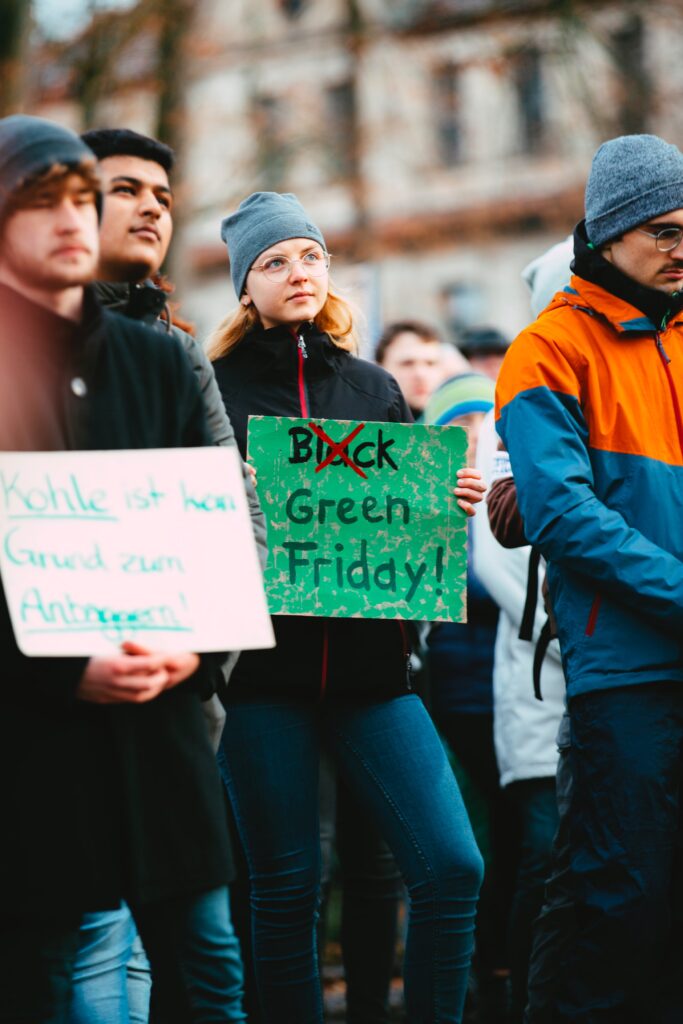Has conscious consumerism caught up with Black Friday?
By Pelican MD Michael Bennett
3 minute read
Key takeaways:
- With a mass move online, the country in recession and consumers more concerned than ever about waste, Black Friday may never be the same again.
- A growing number of brands are choosing to boycott the event to demonstrate their environmental values.
Black Friday and Cyber Monday are looming. In years gone by shoppers would have been eagerly anticipating pre-Christmas bargains while retailers enjoyed a sales boost. But the annual sight of people queuing outside shops at 5am will be absent this year, and not just because of coronavirus.
As we become a nation of more conscious consumers, is this the end of Black Friday as we know it?
A pre-Christmas sales boost
First introduced to the UK by Amazon a decade ago, a range of retailers quickly embraced Black Friday – a term coined in the US for the day after Thanksgiving.
Across the UK shoppers are expected to spend an estimated £6 billion on Black Friday this year, an increase of £400 million on 2019’s estimated figure of £5.6 billion. So it may come as a surprise that some brands are choosing to boycott the event.
Boycotting Black Friday
The fact is that indulging our insatiable need to get our hands on the latest iPhone or a half-price designer handbag just doesn’t fit with the image some brands have built for themselves. For such brands, the options are:
- Give in to the Black Friday phenomenon and enjoy a short-term cash injection, but risk their reputation and potentially lose loyal customers. Or,
- Forgo the short-term gains in favour of turning a Black Friday boycott into a marketing strategy, boosting brand reputation and securing consumer loyalty.
Put in these terms, it’s easy to see why so many are re-thinking their Cyber Weekend strategy.
Who’s boycotting?
There’s a growing a trend for companies taking a stand on social and environmental issues, and Black Friday is the perfect opportunity to send a strong message about over-consumption. The list has been steadily growing for the last few years, but here are a few notable names for 2020:
- Instead of discounting, sustainable trainer brand Allbirds is raising prices, asking customers to “break tradition, not the planet” on 27 November. Allbirds will raise prices by £1 and match them by £1. The difference will be donated to climate change campaign ‘Fridays for Future’, led by Greta Thunberg. Last year the brand closed all stores on Black Friday and offered complimentary workshops to customers to demonstrate the impact of their buying decisions.
- Swedish menswear brand Asket is collaborating with fashion photographer Jonathan Daniel Price on a photo series making a statement against the need for discounting. Asket co-founder August Bard Bringéus told Drapers magazine: “With these images we’re making a statement against a culture that encourages relentless buying, which is especially pertinent now ahead of Black Friday. Instead, we want to inspire people to focus on fewer but quality belongings that they can rely on year in, year out.”
- Swiss bag brand Freitag will shut down its online store this Black Friday and customers will be redirected to its newly launched bag swap platform, called SWAP. This allows customers to exchange its backpacks and messenger bags with others on the platform.
- In France, a collective of 200 brands has agreed to avoid any discounts on the day and instead donate 10% of their sales to non-profits. The campaign is called ‘Make Friday Green Again’.
What’s in it for them?
Firstly, it’s evidence of corporate responsibility. As we’ve discussed before, consumers want to engage with companies that ‘do good’. As a result, brands are not blind to the commercial and competitive edge to be gained from demonstrating social and environmental values.
The number of B Corps – for–profit companies which ‘commit to create a material positive impact on society and the environment through their operations’ – is testament to this recognition.
As of April 2020 there were more than 3,300 certified B Corporations across 150 industries in 71 countries. It won’t surprise you to learn Allbirds is one of them.
Secondly, it’s a canny marketing strategy. By donating profits to a good cause, companies are simultaneously boosting their brand reputation and encouraging consumers to spend more, but for the right reasons.
Regardless of the number of brands or consumers boycotting this year, the mass move online due to COVID-19 means it’s unlikely Black Friday will ever be quite the same again. It’s also true that consumers are becoming ever-more conscious of waste and may be less likely to partake in years to come.
So, whatever a brand’s stance on Black Friday, there may only be a limited number left to take advantage of.
Pelican Communications is a specialist in the environment & CSR, food, packaging & logistics and trade association sectors and offers a range of services such as strategy, design, content creation, public relations and people development. Contact us for marketing and communications expertise.
